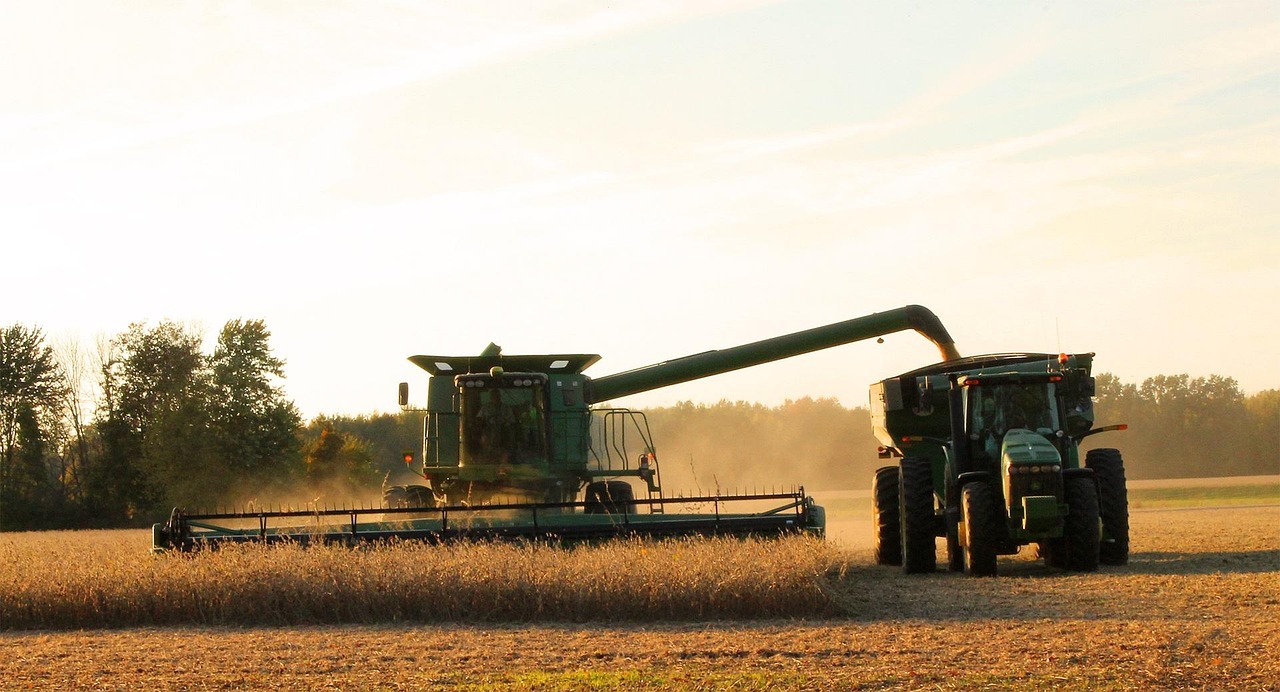
John Jenkinson says this year’s harvest delivered some of the best yields in years — but now the challenge is finding a place for all the grain.
Jenkinson said the 2025 harvest season went “smooth,” with nearly ideal weather and timely rains that boosted yields far beyond what many expected.
“We had rains at just the right time,” he said. “Just enough to get us to the next one. A lot of farmers around us are saying the same thing — the yields were absolutely way above what we expected.”
Record sorghum and corn — and nowhere to put it
But the strong harvest has created a new problem: storage.
Across western Kansas — from Colby to the Oklahoma Panhandle — Jenkinson said grain is piling up on the ground because elevators are full.
“I’ve seen farmers clearing off machinery lots just to pile their own crop on their own ground,” he said. “One elevator near us said they only had room for four more loads of milo and three of corn — then they were shutting the doors.”
With more grain still in the field, Jenkinson said the lack of storage highlights the urgent need for expanded markets and follow-through on trade agreements.
“We are awash in grain right now,” he said. “China has said they’d buy U.S. sorghum, corn and soybeans — but they’ve yet to do that. Meanwhile, they’re buying cheaper grain from Brazil.”

Brazil competition and ethanol demand
Jenkinson said Brazil’s lower production costs and the strength of the U.S. dollar are making American grain less competitive.
“We’ve got a big competitor in South America,” he said. “They can grow it cheaper, and China doesn’t see them as an adversary.”
Ethanol plants across western Kansas are running at full capacity and using as much corn and sorghum as they can, he said, but it won’t be enough on its own.
“We have to find new markets — both overseas and domestically — for all the grain we can grow," he added.
Jenkinson also voiced frustration that a government-funded biofuel plant in Georgia recently purchased Brazilian product instead of U.S. grain. “They can actually buy Brazilian grain cheaper and ship it into the United States than you can buy American grain,” he said.

Farmers squeezed by input costs
Even with big yields, Jenkinson said farmers are barely breaking even because of high costs for fertilizer, fuel, chemicals and insurance. “If we hadn’t had those extra bushels, we would be facing a deficit,” he said. “Margins are tight, and we’ve got to turn that around.”
He warned that if conditions don’t improve, the U.S. risks losing too many farmers. “We do not want to get into a position where we’ve eliminated so many farmers that we have to start importing our food.”
Wheat crop looks good — but markets still lag
Despite concerns in other sectors, Jenkinson said this year’s winter wheat is off to a strong start. “All of our wheat is up and looking good,” he said. “Western Kansas wheat is in pretty good shape.”
Farmers and traders are awaiting the first USDA world supply-and-demand report since the government shutdown halted monthly data.
USDA offices scrambling after shutdown
The recent government shutdown halted much of the work at USDA’s Farm Service Agency (FSA), leaving farmers behind on necessary paperwork.
Jenkinson said local offices will need time to catch up. “They’ve missed a lot of work that usually gets done this time of year,” he said. “FSA employees are going to have to hit the ground running.”
Among the delayed tasks are 578 forms, crop reports, and insurance paperwork for 2026 wheat.
Farm bill stalled, bankruptcies rising
Congress has not yet passed a new farm bill, leaving producers without clarity on future price supports or risk-management tools. “Right now nobody has assurances,” Jenkinson said. “It’s critical that Congress gives us a direction.”
He said SNAP benefits will resume soon, but how that impacts the farm bill is still unclear.
As for bankruptcies, Jenkinson said Kansas hasn’t seen a spike — but the national picture is troubling. “Nationwide, yes, we’ve seen an uptick of two or three percent,” he said. “It’s a sad state of affairs.”
Closing outlook
Jenkinson said despite challenges, farmers remain committed — and hopeful that policymakers will act with urgency.
“We need trade deals, we need markets, and we need Congress to focus on agriculture,” he said. “We’ve got good people in the FSA offices and good farmers out here. We’re all looking forward to getting back to normal.”





